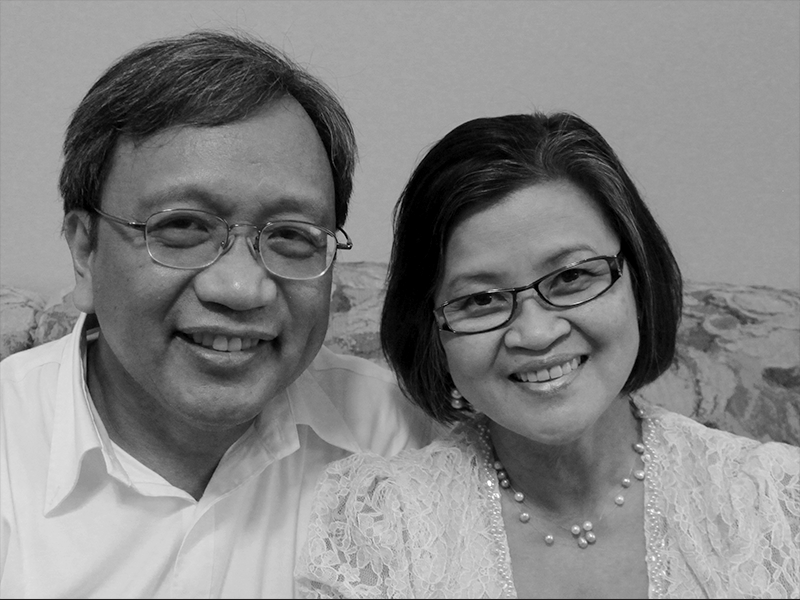Living a Creative Life Congress 2018
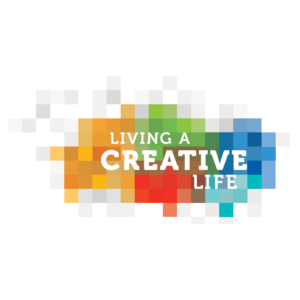
Calgary Arts Development is situated on Treaty 7 Territory, home of the Kainai, Piikani, Siksika, Tsuut’ina, Stoney-Nakoda Nations, and Métis Nation Region 3.
Calgary Arts Development is our city’s designated arts development authority. We provide grant investments to hundreds of arts organizations, individual artists, and groups. We value relationships, generosity, reciprocity, plain language, and curiosity.
Please join us for the 2018 Living a Creative Life Congress.
Art and Social Change
Date: Wednesday, November 21, 2018
Doors Open & Workshop Registration: 8:00am
Event: 9:00am – 4:00pm
Location: The New Central Public Library (800 3rd St. SE)
The 2018 Living a Creative Life Congress is officially sold out. Thank you to everyone who let us know they are coming.
Registration is free—please don’t sign up if you’re not sure if you can attend.
A light lunch will be provided.
Contact Kaley Beiseigel at kaley.beisiegel@calgaryartsdevelopment.com with any questions or if you have food allergies or dietary restrictions.
Background
We believe the arts have the power to build our city. Through the arts development strategy, Living a Creative Life, our vision is a creative, connected, prosperous Calgary where every resident has the opportunity to live creatively. We foster a sustainable and resilient arts sector and support arts-led city building.
Strong relationships are central to our work. We honour artists and believe that art is a critical component of public good. We welcome new introductions and partnerships with artists and arts organizations as well as with others whose work may be outside the arts who are trying to make our city great through living a creative life.
We believe in forming deep bonds and meeting people fresh every time in order to develop relationships based on renewal. Our interest is in building trust, being transparent, listening deeply, and maintaining a sense of humility. We make every effort to create safe, inclusive, brave spaces for conversation and for art in all communities in the context of facilities, who participates, who experiences arts, and who benefits.
Equity, Diversity and Inclusion (EDI) are core values at Calgary Arts Development. By adhering to the following three principles—nothing about us without us, one size fits one, and creating a virtuous cycle—we strive to embed EDI in all that we do.
We have been working towards creating shared environments where all people can feel safe, heard, and validated. A sensitivity to the lived experiences of diverse, marginalized and/or equity-seeking people is very important as we continue valuing EDI in all aspects of our work.
We are also committed to advancing reconciliation and right relations with Indigenous communities through the arts. We are dedicated to learning more about research methods respectful of reconciliation efforts and Indigenous ways of knowing. These concepts feel emergent, but will be vital in our new Original Peoples Investment Program, with implications for the rest of our research agenda.
Event Description
The congress will begin with a keynote address by one of Canada’s leading forces in the realm of art for social change—Judith Marcuse—to inspire our thinking for the rest of the day. After hearing Judith, we will see an example of the arts in action, with a brief presentation by the Pembina Institute involving art and climate change.
Participants will be invited to participate in two workshops, one at 11:00am and one at 2:00pm. Selections will be taken at the check-in table on the day of the event, starting at 8:00am. As there is limited capacity in the workshops, you may not get your first choice, but each of the workshops offers valuable information and experience.
Here is a list of the workshops you will be able to choose from:
Inspiring Action Around Climate Change – Led by the Pembina Institute
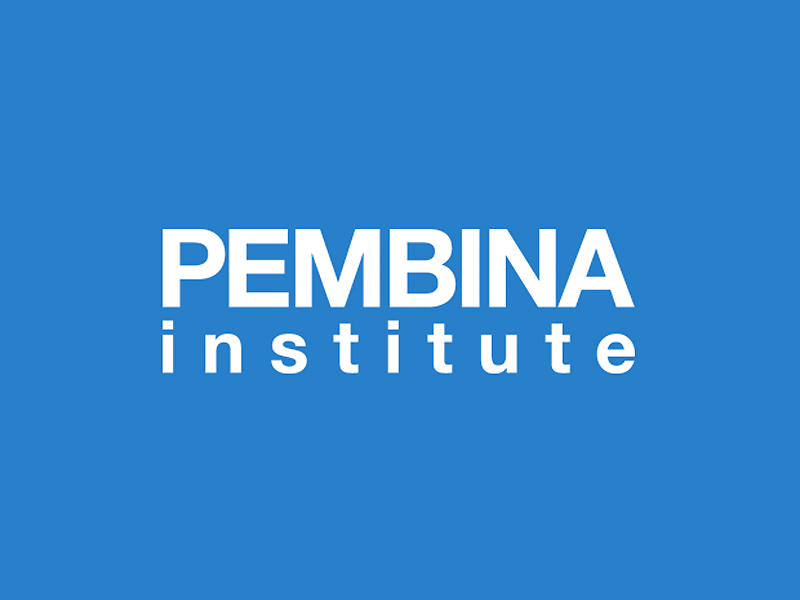
One of the most urgent challenges of our time also happens to be one of the most difficult to discuss much less create engaging art about. Climate change is a highly polarized issue that is both intimidating and inaccessible to many. The scientific information about climate change and new mitigation ideas are constantly evolving.
How do those of us who want to create meaningful dialogue about climate change through our artwork get past the polarity and access information and insights from experts working at the forefront of climate science, energy policy and innovation?
The Pembina Institute wants to connect the expertise on their team with artists to advance and activate the public dialogue about climate change and our necessary energy transition.
This workshop will begin to build relationships between artists interested in climate change and experts in climate and energy issues that value the powerful way that art inspires action in a community. The goal is to build a foundation for artists to confidently explore work relating to climate change and the many social and technical aspects of it.
Please be prepared for a two-minute introduction to your work and, if applicable, a related project or idea for a project (original work, photos or video welcome!) What has informed the project and what challenges or questions have you faced in creating or conceiving your project?
The workshop is hosted by Vicki Stroich (theatre artist and Partner & Community Engagement Director at Alberta Ecotrust) and Binnu Jeyakumar (Director, Electricity at Pembina Institute).
Please Note: This workshop takes place at 11:00am only and has a limited number of spots to be filled on a first-come first-served basis.
Arts, Insight & Action—An Experiential Workshop with Judith Marcuse
Games, movement, image-making, storytelling, graphics, dialogue, and laughter…
Using innovative group facilitation processes and hands-on artmaking, this workshop introduces participants to diverse arts-infused ways of addressing issues and concerns in and with diverse communities. Art for social change (ASC) practices are used around the world to create insight and action on what matters to participants. This workshop will provide an opportunity to experience some of the methods and perspectives of ASC as well as time for important conversations.
No experience necessary. Just wear comfy clothing and be prepared for fun!
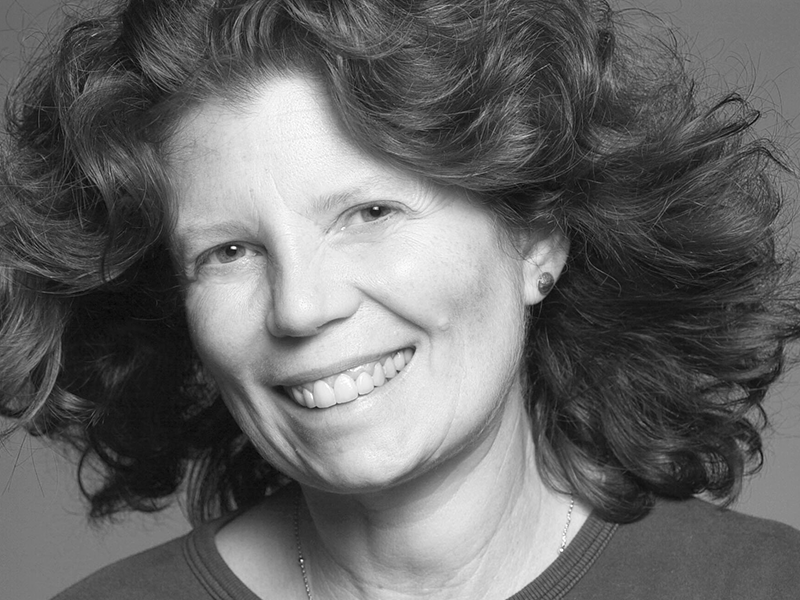
About Judith Marcuse
Judith Marcuse’s career spans over 40 years of professional work as a dancer, choreographer, director, producer, teacher, writer, consultant, and lecturer in Canada and abroad. She has created over 100 original works for live performance by dance, theatre, and opera companies as well as for film and television and has produced seven large-scale, international arts festivals.
Her repertory contemporary dance company toured extensively in Canada and abroad for 15 years, while also producing innovative community residencies and youth programs. Her youth-focused, issue-based ICE, FIRE and EARTH projects, each five years long, involved thousands of youth in workshops, national touring, television production and community collaborations.
Founder and Co-Director of the International Centre of Art for Social Change, Judith is a Senior Fellow of Ashoka International and a Mentor with the Trudeau Foundation. She lectures and consults around the world, most recently in Helsinki, Finland, where she spoke and taught at the University of the Arts.
Among many honours, she has received the Lee and Chalmers Canadian choreographic awards and an honorary doctorate from Simon Fraser University (SFU). She presently leads a six-year research study on art for social change in Canada which comes to an end early in 2019. In June, 2018, the first cohort in a two-year Master’s program in art for social change received their degrees. Developed by Judith, and offered at SFU, the program is the first of its kind in the country.
Shared Learnings from CommunityWise’s Anti-Racist Organizational Change Process – Led by Thulasy Lettner
The words diversity, inclusion, and equity are often used interchangeably.
In this session, we will explore what those terms really mean, how they are related, and what they demand of us as individuals and organizations. We will look at how implicit bias leads to systemic discrimination and why this makes equity an important organizational and sector-wide goal.
Thulasy Lettner will share lessons from CommunityWise’s experience with their Anti-Racist Organizational Change (AROC) process and how talking about race and racism can be an effective entry point into broader conversations about equity.
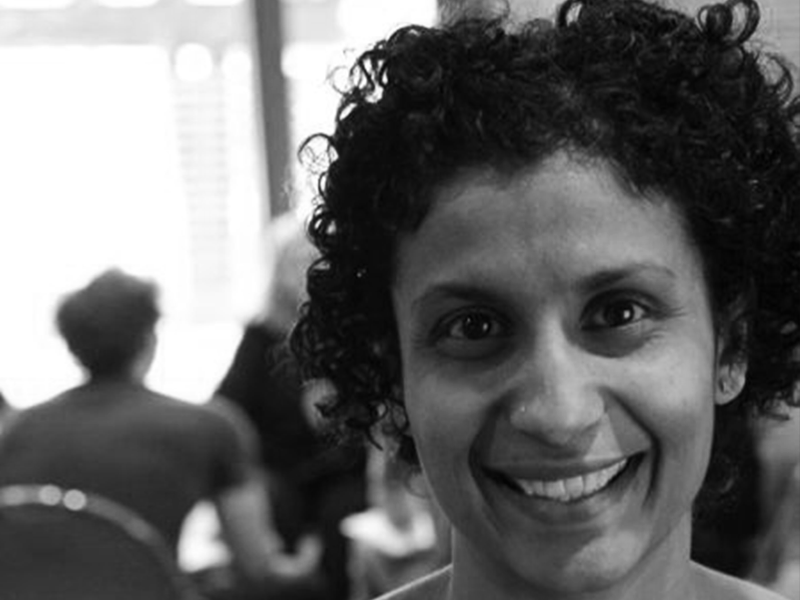
About Thulasy Lettner
Thulasy Lettner is the Equity Framework Coordinator at CommunityWise Resource Centre. She is currently leading an Anti-Racist Organizational Change (AROC) process to strengthen CommunityWise’s capacity to address organizational racism and create greater racial equity, inclusion, and diversity.
She also works as an independent consultant, a mother of two and a part-time farmer, raising chickens on a pasture with her partner in Black Diamond, AB. She has a BSc in Chemical Engineering and has worked in the field of community development for over 10 years.
Smudging, Medicine Wheel Teachings, and Creating a Medicine Bag – Led by Chantal Chagnon
Join Chantal Chagnon for a hands-on experience where you will learn to make a medicine bag while she shares teachings about smudging and the medicine wheel. Each participant can take their medicine bag home with them at the end of the session.
Smudging is a sacred way to cleanse, balance, pray and connect to Mother Earth. The medicines used honour the teachings of four directions of the medicine wheel. We honour and value each medicine is part of the medicine wheel that balances and as sustains us.
Each individual may have a deeper connection to a particular medicine or direction depending on what is needed in their life at the time. Although traditions, medicines and stories may be slightly different depending on the tribe or individual sharing the teachings, the message is always of balance and moderation. The medicine wheel and smudging are an integral part of many First Nations and Indigenous cultures.
Medicine bags, also called medicine pouches, carry our four sacred medicines close to our hearts. They protect and guide us along our journey, reminding us of our connection to Mother Earth, all living things and ourselves. Sometimes they contain stones, shells, feathers, keepsakes or items of significance in addition to the sacred medicines.
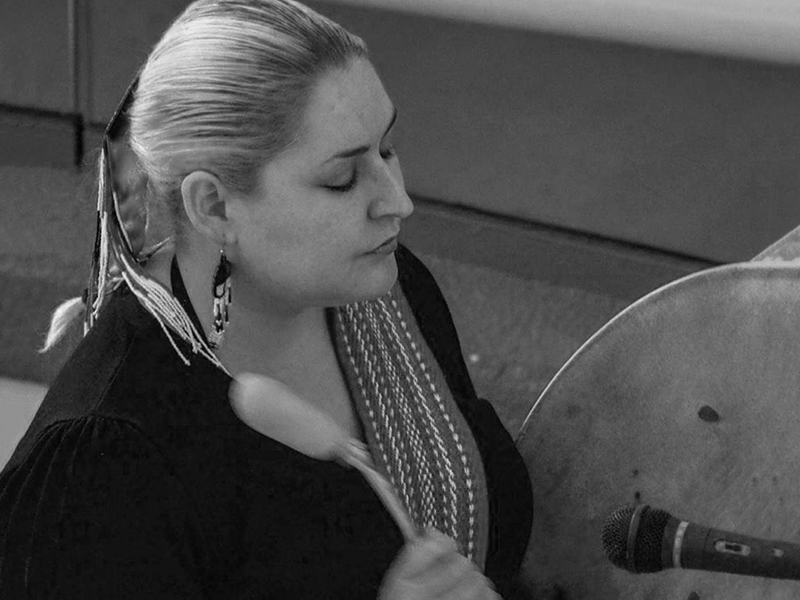
About Chantal Changon
Chantal Chagnon is a Cree Ojibwe Métis singer, drummer, artist, storyteller, actor, educator, workshop facilitator, social justice advocate, and activist with roots in Muskeg Lake Cree Nation, Saskatchewan. She shares traditional Indigenous songs, stories, culture, history, arts, crafts, and teachings.
Chantal has presented at conferences, conventions, galas, fundraisers, social justice events, and in classrooms from preschool through university. She has performed at the National Music Centre, Saddledome, Jubilee Auditorium, Jack Singer Concert Hall, and many other stages showcasing traditional and contemporary Aboriginal music, as well as modern music in collaboration with various bands and artists. Chantal aims to entertain, engage, enlighten, educate, and inspire everyone she meets.
A single mother of two boys, she understands societal struggle first hand. Chantal has been an activist, advocate for her community, professional performer and a staunch crusader for causes close to her heart. She is active within many social justice causes, including Murdered and Missing Indigenous Women (MMIW), women’s rights, and environmental initiatives. She regularly organizes events and shares, singing, drumming, speaking, presenting, and teaching within the community, with a focus on building allies and alliances. Chantal is passionate about building awareness and sharing an understanding of Aboriginal culture, spirituality, social justice and political issues. She creates opportunities for cooperation, education, and empowerment everywhere she can.
Chantal recognizes sharing culture and building community is an integral part of building bridges of understanding and acceptance. Chantal is a compassionate woman, who believes that a healthier, fairer, more sustainable Canada is possible as we make decisions for future generations to come.
Beyond Engagement the Art of Community Building – Led by Marichu Antonio & Cesar Cala
Cesar Cala and Marichu Antonio will facilitate an interactive session to explore the creative combination of community organizing and artistic endeavour.
How can we start to build common ground, how do we develop shared agendas, and how can we help foster authentic conversations toward community change?
In public and creative realms, communities are often relegated to the roles of audiences and beneficiaries. Seldom are communities recognized and acknowledged as partners and collaborators, as initiators and instigators. How can we go beyond narrow engagement and work with communities to discover, deepen, and strengthen common pathways to change?
Community development is arithmetic because it deals with the gathering of people in their numbers, sets, and groups. It is chemistry because it is a coming together in a dynamic mix of diverse strengths, capacities. It is art because it aims to reinterpret, to pose new meanings and symbols, to sketch the outlines of new realities. It is both messy and methodical. This workshop is an invitation to share our learning in our different fields of practice.
About Marichu Antonio
Marichu Antonio is a pioneering leader and innovator. She is currently Executive Director of ActionDignity, a community based organization of more than 70 ethnocultural organizations that facilitates the collective voice of ethnocultural communities towards full civic participation.
Working with communities, Marichu focuses on addressing issues of systemic discrimination and inequity. Marichu was the Community Development Manager at the Centre for Newcomers for 13 years, expanding the agency’s community and economic development programs. She founded EthniCity Catering, a social enterprise that provides employment experience to immigrant women.
Among her current and past leadership positions are:
- Leadership Council, Cultural Plan for Calgary
- Governing Council, Calgary Local Immigration Partnership
- National Diversity Advisory Council, Big Brothers Big Sisters Canada
- Board Member, Momentum
- Founding Director and former President, Babae Council of Filipina-Canadian Women
- Founding Director, Philippine Festival Council of Alberta
Marichu is a recipient of the 2012 Queen’s Diamond Jubilee Medal and Avenue Magazine’s A-List of Volunteers in 2009 in recognition of her contributions towards strengthening communities.
About Cesar Cala
Cesar Cala recently worked as Partnership Lead and Manager of Neighbourhood Strategy at United Way of Calgary and Area. Before moving to Canada in 1996, Cesar was involved in community development in the Philippines and other parts of the world for more than 15 years on issues of human rights, democratic reform, people’s participation and grassroots development.
In Calgary, he pursued community development, both in volunteer and professional capacities, with organizations like the Arusha Centre, Oxfam-Canada, the Developmental Disabilities Resource Centre of Calgary, the Ethno-Cultural Council of Calgary, the Children’s Legal and Educational Resource Centre, Sustainable Calgary, Calgary Foundation, and the Asian Heritage Foundation for Southern Alberta. He occasionally lectures at the University of Calgary on community development and social justice.
Cesar has led and participated in a number of groundbreaking projects in Calgary, among them, the 1000Voices hub at the Genesis Centre, Vital Signs Calgary, grassroots grantmaking and Fiesta Filipino. In 2012, he received the Queen’s Diamond Jubilee Medal and in 2015, the Governor General’s Caring Canadian award.
Keynote Presentation with Judith Marcuse
We are thrilled to welcome Judith Marcuse to share experiences and insights about art for social change in Canada and around the world.
If artists are to be change-makers, what are the conditions that lead to success in their work?
With Calgary and other communities in mind, Marcuse will explore the dynamics of arts-led city-building and how arts-based initiatives can contribute to the development of community.
Rooted in her extensive creative experience in the field, and supported by the findings of a soon-to-be-completed six-year Canada-wide research investigation into art for social change, she will touch on these and other provocative matters:
- What underlying principles and perspectives inform this burgeoning arts discipline?
- How do these approaches relate to social innovation strategies?
- What issues are currently being addressed by these arts-infused practices?
- How can effective partnerships be created and sustained?
There will be ample time for exchange.

About Judith Marcuse
Judith Marcuse’s career spans over 40 years of professional work as a dancer, choreographer, director, producer, teacher, writer, consultant, and lecturer in Canada and abroad. She has created over 100 original works for live performance by dance, theatre, and opera companies as well as for film and television and has produced seven large-scale, international arts festivals.
Her repertory contemporary dance company toured extensively in Canada and abroad for 15 years, while also producing innovative community residencies and youth programs. Her youth-focused, issue-based ICE, FIRE and EARTH projects, each five years long, involved thousands of youth in workshops, national touring, television production and community collaborations.
Founder and Co-Director of the International Centre of Art for Social Change, Judith is a Senior Fellow of Ashoka International and a Mentor with the Trudeau Foundation. She lectures and consults around the world, most recently in Helsinki, Finland, where she spoke and taught at the University of the Arts.
Among many honours, she has received the Lee and Chalmers Canadian choreographic awards and an honorary doctorate from Simon Fraser University (SFU). She presently leads a six-year research study on art for social change in Canada which comes to an end early in 2019. In June, 2018, the first cohort in a two-year Master’s program in art for social change received their degrees. Developed by Judith, and offered at SFU, the program is the first of its kind in the country.
